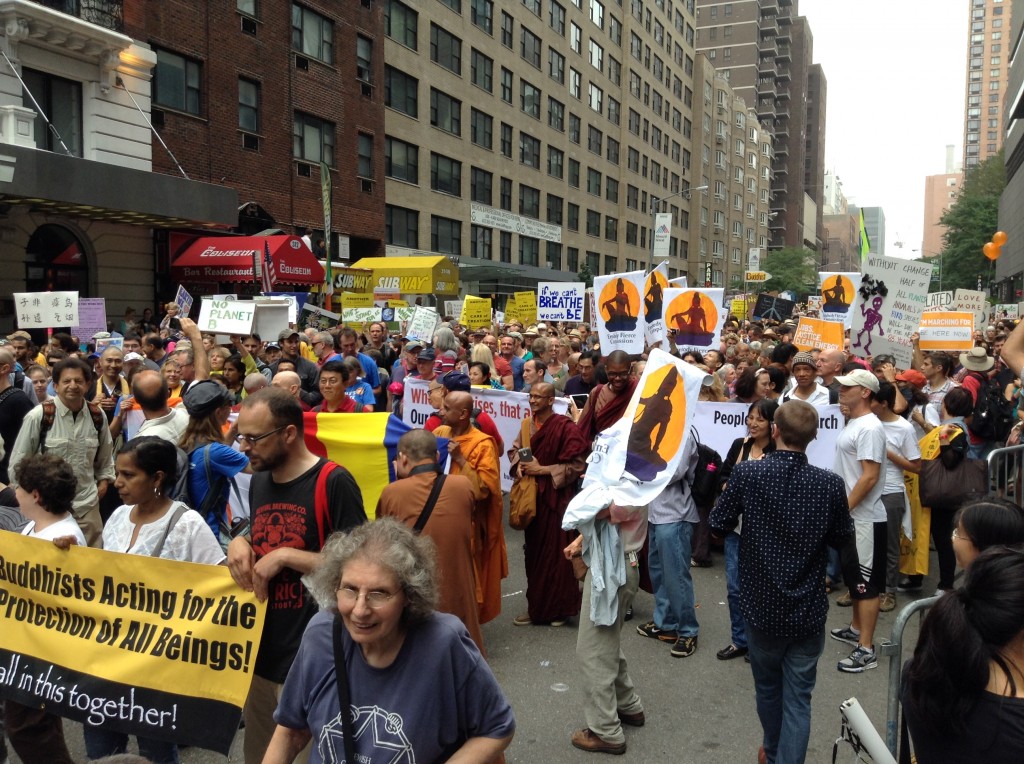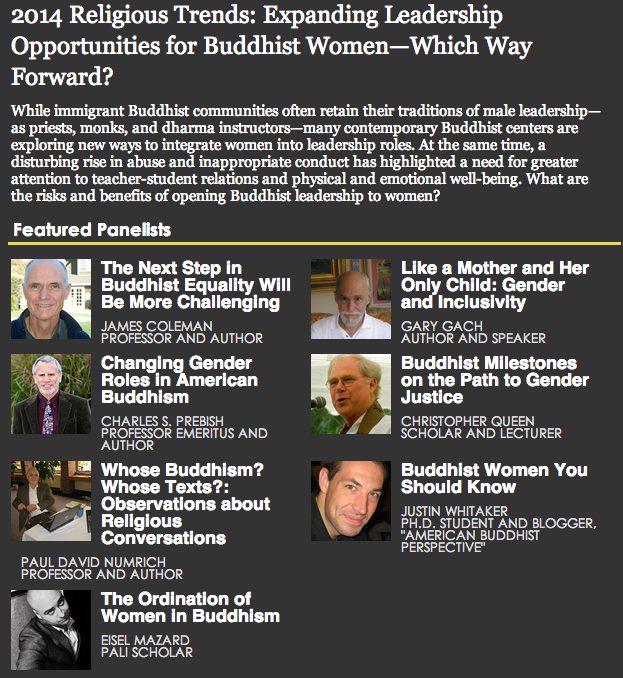
Shortly after the conclusion of the recent American Academy of Religion Annual Meeting in Chicago, a piece appeared at Religion Dispatches entitled “Religious Scholars Convene, Have Nowhere to Sit”. For just shy of 1,000 words, Dr. Ivan Strenski, a professor of religious studies at the University of California-Riverside, laments “how convention centers are killing academic culture” by launching a “War on Sitting Down.” He observes that there is often nowhere to sit or socialize or drink in convention centers (and no place to put chairs and sofas even if those places suddenly materialized), and that “setting annual meetings in these massive centers, plus the cumulative effect of well-intentioned policies for promoting young academics, have effectively sabotaged the intergenerational culture essential for a rich sense of intellectual identity.”
In a sense, I’ve got no real beef with the content of the piece. I’ve been to many AAR Annual Meetings at many convention centers, and, yup, often there’s a lot of standing by necessity. In addition, I think he has a point to make about the “new ageism” in our field: the AAR experience may indeed be a symptom of a larger issue that I certainly recognize in our little corner of higher education.
What bothers me about the piece, though, is what it reflects: that apparently, as professionals, we seem to have prioritized our own comparatively trifling concerns ahead of the poor and vulnerable. Why is this the first thing we’re hearing about AAR 2012 in a major forum post-event from a participating scholar? What we have here is nearly 1,000 rather hyperbolic words about the “War on Sitting Down,” given a home at a website that is supposed to function as “a forum for journalists, scholars and advocates to share their expertise and inform the conversations that shape our lives and our democracy.” (Other perhaps over-the-top words and phrases used in the piece include “killing,” “sabotaging,” “militate,” “conspired,” and “Dante’s Inferno.”) But where in the piece — or anywhere else at the website for that matter — is any mention of the Hyatt boycott organized by Carolyn Roncolato, a doctoral student at Chicago Theological Seminary (which I previously mentioned in this post)? Where is any mention at all of the conditions that Hyatt workers currently endure (and are so concerning that over 5,000 individuals and organizations have pledged to boycott the company)? How is it that we show up at this controversial place and the first and so far only thing we can find to say publicly (and ad nauseum no less) is, “There aren’t any nice places for us to converse and carouse! This sucks.” We have to do better, religious studies professionals!
The truth, though, is that this is bigger than just this author or this forum. As Mark Oppenheimer reported in his piece on the meeting and Roncolato’s activism for the New York Times, “[It was] suggested that academy members attend an American Academy of Religion business meeting on Sunday morning, where Ms. Roncolato would propose a pro-labor resolution. At the meeting, only about 70 of thousands of members showed up.” (Elsewhere, the author talks about the reticence and reluctance of some members from participating.) The resolution, though, which is “a nonbinding recommendation to the board,” passed. Oppenheimer continues: “It proposed that clauses in future hotel and convention contracts provide that ‘if there is a boycott, strike, lockout, picketing or other labor dispute,’ the organization ‘will be released from all contractual obligations without charge or penalty.’”
That’s good, but seventy attendees to such a business meeting is too little. The lack of articles or substantive reflection or action on this by scholars in forums such as Religion Dispatches is problematic. Unintentionally or not, we’re sending a message to exploited workers that they are less important to us than more seating and fancy drinks or whatever else we would talk about before we talk about them. We need to do better. We all need to get behind Roncolato. As she says so well…
We write papers and present papers on systemic injustice, racism, classism, sexism, so the idea that we would stay at the Hyatt totally undermines what we do… The idea that as academics we would ignore the people around us while we talk is hypocritical.











